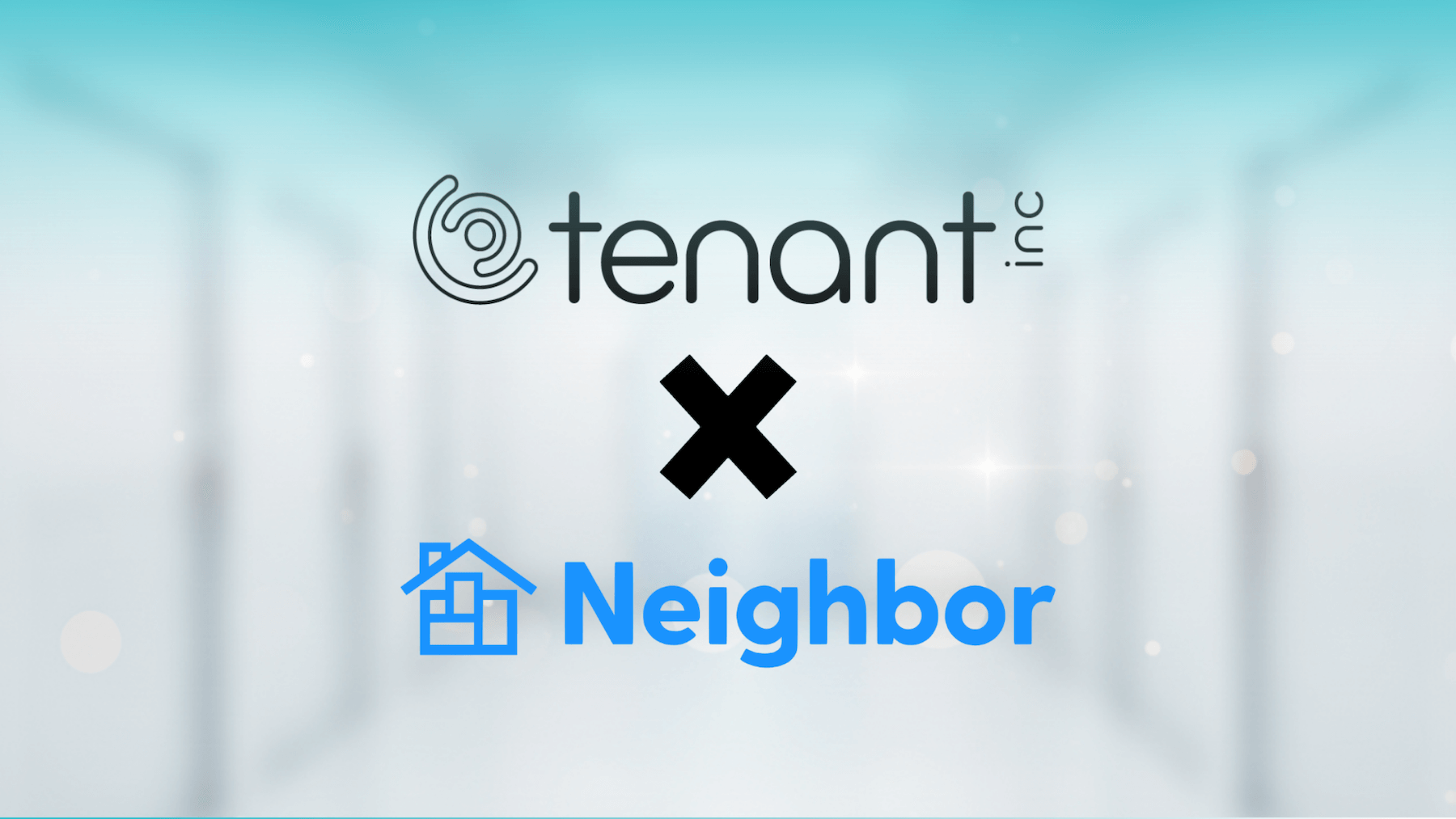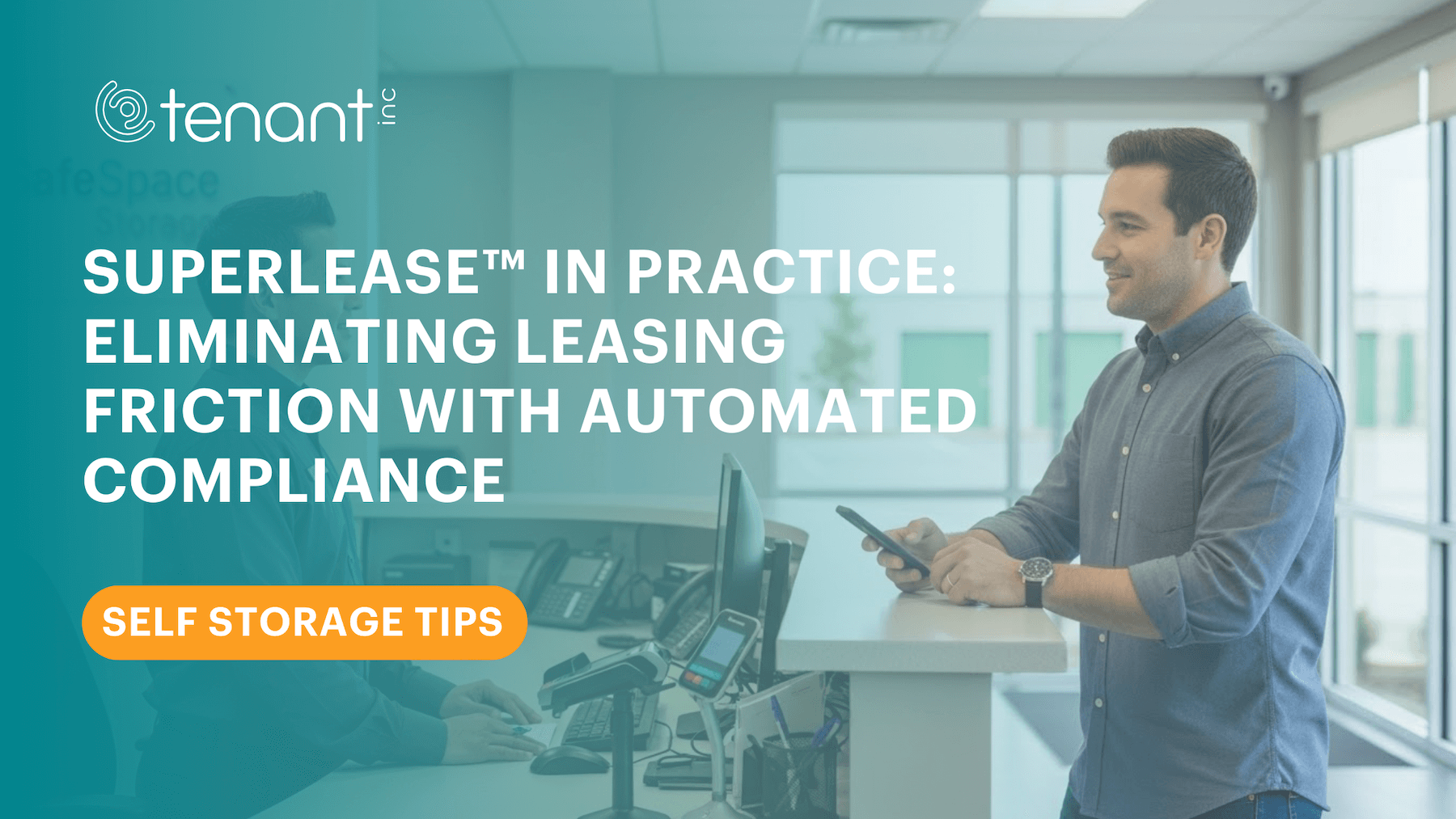The Landscape
You’ve probably heard about Storelocal’s series on APIs in the storage industry. Definitely pursue them if you care about thriving (or even just surviving) in an ever increasingly dynamic market. What you might not have heard is that Storelocal wrote that series three years ago but was only recently able to publish Part III. Ironically, today, API issues are more timely than ever. Data ownership is still unclear.
Data access is still unsettled. Data utilization is still cumbersome.
As a storage owner or operator you still need the right data, in the right place, at the right time - without giving up your firstborn child.
While API issues remain, the storage industry landscape has drastically changed. If three years ago the landscape was suburbia with a few strip centers, then today there’s a towering high rise smack dab in the center of town. Its shadow is long, and it’ll cause businesses to shutter their doors. It’ll either continue to build up or it’ll attract more developers. Maybe both. This changed landscape is what we’ll delve into today.
First, we’ll address the high rise, a.k.a. SpareFoot-SiteLink-storEDGE. Second, we’ll ponder consolidation in general. Third, we’ll wrap up with our warnings and suggestions for the industry.
Spoiler alert: We believe competition spurs innovation and curbs cost. Industry benefits. We also believe that who competes and how they compete is critical. And we’re confident there’s a superior alternative to SpareFoot’s old fashioned approach to consolidation. Private equity-backed SpareFoot is gobbling up mediocre, outdated products, then painstakingly figuring out how to smash them together, through great effort and cost. Industry-owned Storelocal on the other hand, is embracing a well-thought-out and comprehensive product suite, designed to integrate initial and future products. The world spins at a quick clip these days, and what worked yesterday doesn’t always work today. Yesterday the big ate the small. Tomorrow the fast are going to eat the slow.
Back to the landscape….
The High Rise
At the SSA’s 2018 fall show, Chuck Gordon, founder and CEO of SpareFoot, addressed an apprehensive audience about tech consolidation in the storage industry. Half a year earlier, SpareFoot had announced that a billion dollar
private equity firm took a majority stake in SpareFoot and that the freshly funded SpareFoot purchased SiteLink as part of the transaction. On the eve of the 2018 fall show, the SpareFoot-SiteLink duo added storEDGE to the fold. SpareFoot’s stated goal? “To build an all-inclusive technology solution for storage operators.”
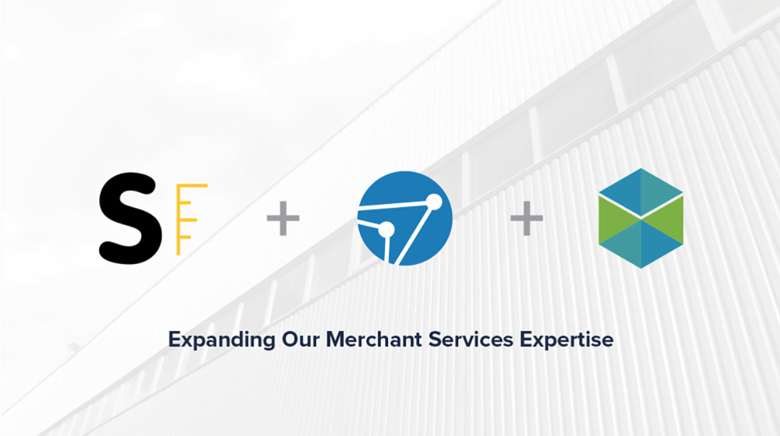
A convenient product offering or alarming monopolistic consolidation?
Let’s ponder Chuck’s impressively candid presentation. Then you decide.
Chuck transparently underscored that SpareFoot doesn’t have a hidden agenda. We for one believe him.
In SpareFoot's own words:
“We believe we can build a big technology business over time by putting together a whole bunch of these different components, selling it as a single bundled package.”
Look no further for a secret strategy. This is alarming enough as it stands. SpareFoot-SiteLink-storEDGE isn’t already big?! It’s a behemoth. How much bigger do they want to get?!
Chuck noted that adding new technology pieces will take time, but that they will do so “forever.” At the time he presented, SpareFoot already had the self storage version of Expedia, TWO of the industry’s largest property management software platforms, payment processing, and a prominent website platform product with a host of other bells and whistles such as cloud access keypad control. SpareFoot has since added an additional payment processing solution to the fold (Select Merchant Solutions), stating, “This is yet another example of how our team is expanding both the breadth and depth of our platform.”
In his SSA presentation Chuck mentioned that tenant insurance may be the next area of opportunity. This makes sense as tech is expensive and tenant insurance is profitable, so tenant insurance can finance additional technology acquisitions. And they already have two payment processing options, with the same motivation – funding. Remember, SpareFoot’s stated goal is to build an “all-inclusive technology solution for storage operators.” That ain’t cheap.
So why is this problematic? As Chuck noted, tech consolidation allows customers to easily find what they want and helps storage companies make more money. In other words, by acquiring other major self storage tech players, SpareFoot gains efficiencies and improves products, which in theory allows storage owners to increase profits. This is a pretty massive assumption however, because consolidation reduces competition and could easily result in increased costs. If your costs increase more than your revenue increases, you’re not going to make more money no matter how great the product. Monopoly pricing power is a real thing. Still, for argument’s sake, let’s assume SpareFoot’s consolidation increases your profits. Let’s take it further….let’s assume SpareFoot’s never-ending bundling of services not only makes you more money in the short-term, let’s assume they don’t disproportionately increase costs and you also increase your profits and equity in the long-term. Even so, massive tech consolidation in one private equity-backed entity is problematic.
Stay with us, there’s still a lot to unpack, but it just gets more and more interesting!
Let’s start simple. Sprint and T-Mobile are currently seeking to merge. The government’s not so sure this is good for the consumer. Might stifle competition if there are only three major wireless providers. Sprint and T-Mobile on the other hand, argue that they can’t compete with AT&T or Verizon in a 5G world, and will fail unless they merge. In self storage, the combination of SpareFoot and SiteLink is more akin to AT&T and Verizon merging. Think of how incredible your mobile service would be if you had the combined networks of AT&T and Verizon! Super convenient, right?! Great product, right?! But at what cost? Talk about monopoly pricing power. And cost isn’t always immediate or direct. What if they’re grabbing market share and increase costs later? And cost isn’t always financial. What about protecting an industry, business owners, and consumers? What about choice? What about negotiating power? What about having a voice? What about being big enough to matter to your vendor?
This is just the tip of the iceberg.
Three years ago, Storelocal’s API series noted that in our industry, technology solutions are fragmented. This means your data is all over the place, and it’s hard to move it around where it needs to go. This makes things like providing online rentals difficult. It’s 2019, don’t you think pretty much every storage company should offer online rentals? Your customer thinks so. The inability to have the right data, in the right place, at the right time drives up marketing and operational costs, making it increasingly difficult to compete with the biggest storage companies. Heck, your customers can’t even find you online. Even if you succeed in grabbing a potential tenant, they literally slip through your fingers because they can’t easily transact with you online. And trying to remedy this problem is like banging your head against the wall, because you’re handcuffed by your inability to move your data. The struggle is real. Data problems are digging into your profits and value, diminishing your hard-earned equity.
Three years ago we also mentioned that given fragmented ownership, vendors aren’t incentivized to provide industry-wide solutions for our data issues. At the time, we spitballed that even for the biggest vendors, the average customer probably only has three or four facilities. In his presentation, Chuck revealed that the average new PMS customer has 1.2 facilities. There you go. So even the biggest vendors aren’t going to solve the storage industry’s data problems.
But what if you smash together a few of the biggest storage vendors, centered around the biggest storage PMS, and sprinkle in a billion dollar private equity firm….. can they somewhat centralize and streamline data? Probably? Well, SpareFoot is already there.
Then add the profits of tenant insurance, payment processing, and a host of other tech sectors over time. You can see how powerful an entity like that could get.
If a well-funded and robust company is necessary to solve data problems, are you scratching your head wondering why it’s bad if SpareFoot can finally solve the industry’s problems? Let me explain. A part of the puzzle is the value of data. Your data is valuable to you. Aggregated data from a significant segment of the industry – that’s REALLY valuable. Fully utilized aggregated data – that’s REALLY, REALLY valuable.
Here’s a concrete example to flush out the value of data and the importance of data integration. Chuck explained that SpareFoot bought storEDGE for their web platform (because nearly all new PMS customers want a PMS website bundle). The really interesting part is Chuck’s elaboration that SiteLink customers can now finally do online rentals on a website powered by storEDGE: “Historically the storEDGE websites have not been available to SiteLink customers because of a long standing legal issue that is now gone because of our merger.”
Want a translation? SiteLink and storEDGE didn’t have open API access with each other, meaning they weren’t openly sharing data back and forth. So if you used SiteLink for your PMS, you couldn’t use storEDGE’s website, but SiteLink didn’t even have a web product to offer you. Did SpareFoot just buy SiteLink and storEDGE for a pretty penny because it was the only way to solve an API issue? Kinda looks that way…all three businesses are still run by their prior CEOs and respective teams, housed in their same headquarters, and operating somewhat independently. Or maybe they weren’t “solving” an API issue…maybe they capitalized on how a tiff between two vendors limited their respective values and future potential, handcuffed storage companies, and hampered the consumer experience? SpareFoot didn’t need to solve an API issue, but they did because there’s tremendous upside in solving API issues in the storage industry. Upside for the vendor, the storage owner, and the tenant. So much upside that it made sense to buy TWO of the largest self storage vendors.
THAT’S how valuable it is to have the right data, in the right place, at the right time. Now SpareFoot has scale, three main tech components, that they can integrate……AND DATA!
It’s also an impactful illustration of the power vendors hold to restrict your use of your data. They say it’s your data - that you “own” it. But oh no, you can’t do that with it!!! Sure, you can send your data to that guy. But oh no, you can’t send it to that guy. What good does that do you? It’s like needing a permission slip to go to the bathroom. It’s hardly ownership of your data. And where are the terms of this so-called ownership defined? And what if they change their mind tomorrow? Chuck noted, “your data is your data and it’s living in the same place it always has.” That’s kind of the problem isn’t it? Your data primarily rests with your PMS, but you need to move your data all over the place. Despite claims that you “own” your data, you do NOT have the legal protection to allow you to move your data as you desire. Only now the entity that houses that data is getting bigger and bigger and bigger….
So that’s the high rise. SpareFoot is solving the industry’s data and API issues by old-fashioned gobbling up, and smashing together, of a bunch of disparate companies. The big eat the small. That’s one way to integrate and build a better product (more on that later). Regardless of whether that’s the most beneficial or enlightened path forward, SpareFoot is moving forward, and they will continue to grow in size and power. The window is closing for a meaningful competitor to enter and not only serve as a backstop against SpareFoot, but to provide a superior path forward. Superior integration and product by a player whose interest are actually aligned with the interests of independent storage owners and the industry in general.
Pondering Consolidation
Now let’s examine consolidation in general. How can lessons from other industries inform the current landscape in self storage?
Mergers & acquisitions occur for any number of reasons: diversification, product improvement, market shifts, out maneuvering shareholders, or protecting board seats. In an article on M&As, the Wall Street Journal noted that every M&A cycle looks different. Before the 2000 tech bubble, M&As were offensive moves to expand into new areas. Before the financial crisis it was all about leveraged buyouts. In 2015, it was megamergers of direct competitors, to gain scale, cut costs, and lower taxes by moving headquarters overseas. In 2017, M&As were driven by an abundance of cheap debt, high stock prices, and the threat tech giants posed. M&As had their third biggest year ever in 2018 (trailing 2007 & 2015).
Concrete examples are illustrative.
In 2018, CVS purchased Aetna for nearly $70 billion. CVS claimed the deal would cut costs and improve care. The deal “created an industry giant that combines a retail pharmacy, pharmacy-benefit manager and Aetna’s insurance business.” It looks like SpareFoot took a page out of CVS’s playbook. In his SSA speech, Chuck said that SpareFoot’s consolidation would make storage companies more money and result in a better product for the consumer. Also like CVS, SpareFoot joined together previously distinct pieces in a new way to bolster their market position. Even more fascinating, a major incentive behind the CVS deal was the access to data CVS would gain through Aetna. We’ll connect the dots for you in case you haven’t had your morning coffee yet. Like the CVS deal, SpareFoot gained a massive amount of data by acquiring SiteLink.
Have you noticed how all roads point back to the value of data?
As self storage owners, we pride ourselves in the financial success and resiliency of our industry. Rightly so. In 2016, the Wall Street Journal spilled the beans, reporting that “REITs are by far the best-performing asset class in the market over the past 15 years” and actually went on to specifically call out Public Storage as a REIT that many investors overlooked (much to their chagrin). And ya, they even referred to Public Storage as a sexy stock. So ya, storage is sexy, and we are all rock stars, but did we miss the next big thing – i.e. data? And even though it’s now readily apparent that data is king, are we not only missing the entrepreneurial opportunity, but we’re actually failing to utilize data, AND we’re allowing others to profit from our data? And sometimes even use it against us? We can’t properly utilize data because we can’t move it around the way we need to. REITs properly utilize data because they house their own data and can move it wherever they want. So….we’re not profiting from data, we’re not properly utilizing our data to run our businesses, others are profiting from our data, and sometimes our own data is even used against us. Fantastic.
To add insult to injury, SiteLink and storEDGE were both just bought for a pretty penny in part because of your data and the fact that it was being under-utilized. What’s worse is that now your data is going to be FULLY UTILIZED – i.e., someone else is going to make money off of your data. Damn, that sucks.
Point is, data is itself a booming business. Data is power. Data is used by industry to target customers with laser-like precision, by politicians to lie to you & steal your money (jk), and by law enforcement to put the bad guys behind bars. Heck, these days even dating comes down to data. Dating apps use data to feed up compatible prospects and then it’s practically standard protocol to run a background check before going on a date.
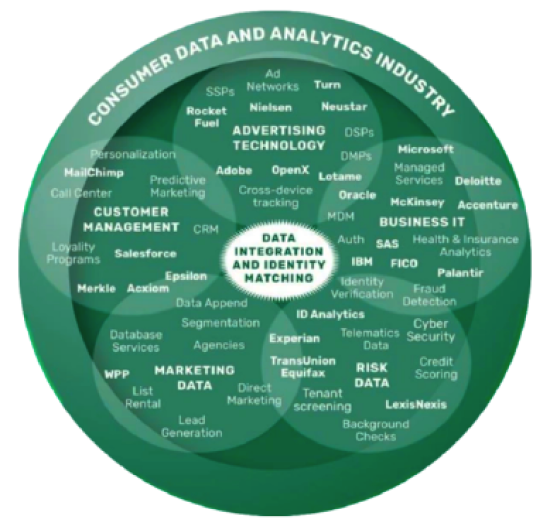
And the data is more detailed than you think. We’re not just talking age, gender, and income or even shopping habits or political leanings. “If you use a smartphone or a credit card, it’s not difficult for a company to determine if you’ve just gone through a break-up, if you’re pregnant or trying to lose weight, whether you’re an extrovert, what medicine you take, where you’re been, and even how you swipe and tap on your smartphone.”
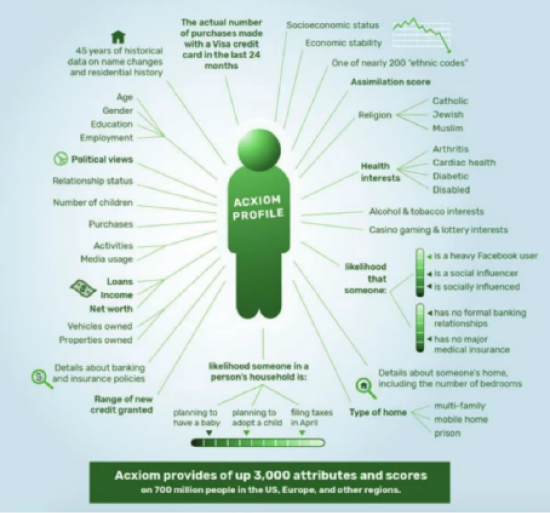
Our brains would explode if we fully grasped all of the ways data affects our day-to-day lives.
Did you know stock exchanges sell data? In fact, due to “exerting monopoly pricing power” the SEC just imposed restrictions on exchanges’ ability to increase fees for data.
“Until the 2000s, exchanges made only a small share of revenue from data and sometimes even gave data away free. Now (data) revenue…rivals what the companies take in from trading.” Say what?!!!!!!!!!!!!!! “From 2014 to 2017, total annual revenue from market-data services for the three big exchange companies surged by 45% to $2.3 billion.”
Could our data have provided an additional revenue stream all these years? Should have, would have, could have. Hindsight is 20/20, as they say. But…this wrong can still be righted. We’ll be frank with you. The window of opportunity is closing! More on this in a bit. Back to M&As.
Beyond data, there’s another interesting undercurrent to recent M&As.
Many proposed and successful deals center around the combination of content creation AND distribution. Basically, it’s strategic and more profitable to both produce your own content and directly distribute it to consumers. In June 2018, AT&T acquired Time Warner for $85 billion. The purpose behind the deal was crystal clear in AT&T’s press release: the future of media entertainment requires kiss-ass content + direct distribution to consumers + a high speed network that can directly distribute this kickass content. If these are the three components necessary for success, why not own all three? Likewise, in March 2019, Disney acquired 21st Century Fox for $71.3 billion after previously stalled talks. The goal? Disney Chairman and CEO stated, “our goal here is to be a viable player in the direct-to-consumer space.” Content + distribution.
This by the bye, is vertical consolidation: controlling various aspects within an industry. SpareFoot buying a PMS, a web platform, and a payment processing system is vertical consolidation. Horizontal consolidation on the other hand is buying up competitors…sometimes to the point of controlling the market and raising prices. Remember Chuck’s comment regarding their payment processing acquisition? “This is yet another example of how our team is expanding both the breadth and depth of our platform.” Was he indicating a more dynamic bundled service offering? Or was he showing his hand for vertical and horizontal consolidation?
Got it. Data, and combining content and distribution, are fueling today’s M&As. A third dynamic is also in play: tech giants.
The threat posed by big tech giants is inducing M&As. Basically, FAANG (Facebook, Apple, Amazon, Netflix, and Google) has put the fear of God into company boards and shareholders, spurring deals that might not have occurred otherwise. The AT&T and Time Warner deal was spurred by competition from Netflix. The Disney-Fox deal? Ditto. Fox owned a controlling stake in Netflix competitor Hulu. And Disney was already working on its own streaming services and had previously announced it wouldn’t put future movies on Netflix. Sounds like Disney felt like they were feeding the giant that was about to hack their head off.
Remind you of the sentiment against using SpareFoot? A necessary evil? Everyone else is doing it, so you also have to in order to keep up? Now look what happened. Does the industry need to do something to protect ourselves, and the industry as a whole, from our tech giant? The content + distribution impetus for recent M&As is also at play here. You have the inventory, but you don’t have the distribution. It’s getting harder and harder to reach your customer online. And it’s only going to get worse. Way worse. So you’re feeding the monster. You would reach more customers (make money) with a LOT less expense (save money) if you had content + distribution.
This brings up a very important point. Decreased profits (whether decreased revenue or increased cost) also decrease the value of your facilities. In other words, your assets lose value if reduced competition from tech consolidation drives up your cost. All of this affects your cash flow and your equity. Your slush fund and your grandkids’ college funds. We digress.
In sum: the world is a changin’. Data is massively valuable. You can use it for your benefit and make yourself money, or it can be used against you and make someone else money. Combining content and distribution is necessary to compete. Don’t feed the monster that’s going to hack your head off. Tech giants scare even the bravest of CEOs. But brave CEOs get scrappy and figure out a solution. Don’t stick your head in the sand. Now’s the time to have fun and really do something entrepreneurial.
The Skyline
Are you thinking, “okay, I get it, but what’s the alternative?” Then let us throw out an alternative. The Storelocal co-op and Tenant Inc.’s product suite. We are the fast and we will eat the slow. It’s not about being big, it’s about being nimble. Not size. Agility.
Remember in our spoiler alert we said who competes and how they compete is critical?
SpareFoot is consolidating the old-fashioned way. They are gobbling up companies and smashing products together. It’s a bit sloppy, to be honest. It gives them scale, platform, and data overnight, but it’s not a very nuanced or astute approach. It works okay in the short-term, but it doesn’t provide the best long-term strategy or product. But that makes sense, right? Remember that a majority of SpareFoot is owned by private equity. Doesn’t “private equity” conjure images of investors with dollar signs in their eyes just waiting to sell at the first opportunity to make a boatload or hedge their loses? And who would they sell to? We’re talking a really big number here, so it would have to be a top entity within the industry or a late-stage venture investor. We like Chuck. We might not like a successor SpareFoot CEO.
We believe storage owners should be the one leading the industry’s tech consolidation. As owners and operators, we are already held hostage by an inability to use our data the way we need to. If we allow a tech vendor to grow into a behemoth, we could really end up limited. Please don’t misinterpret. Chuck and the SpareFoot team are great. Lots of integrity, vision, and drive in those Austin headquarters. We don’t imagine they have any malicious intent – it’s just a conflict of interest. The question is: what is best for you, and what is best for the industry? Will your interests necessarily be aligned with the interests of a behemoth version of SpareFoot? Maybe they will be! But is that likely? And are you willing to take that risk? Maybe for you, a bundled service is convenient and efficient. We get it, but it’s indisputable that any industry needs at least an AT&T and a Verizon. Chuck even noted this in his speech. Competition breeds innovation, and the self storage industry is in desperate need of innovation.
Don’t get us wrong, we want to make money too, and believe the market should have the last word. But we care about the industry as a whole and the players that make up that whole. We are third and fourth generation self storage companies. We are developers that started our self storage career as kids and have lived and breathed it ever since. We want to leave our portfolios to our kids and grandkids. We want to leave a legacy. We want to leave the industry better than we found it. Does the PE money behind SpareFoot feel that way? Deep in their bones? Who we are is different.
How we compete is also different. SpareFoot’s gobble and smash approach is certainly superior to the industry’s current modus operandi. SpareFoot can now have open API access between the industry’s biggest PMS, the industry’s biggest lead-gen, and a significant industry web platform. That means data can flow between these three components. That’s better than the broken infrastructure where you can only use vendors your PMS will integrate with, and even if they are willing to integrate, it’s not very efficient or smooth. And it turns into a game of whack-a-mole….a PMS makes an adjustment to accommodate one storage company or vendor and that creates a problem somewhere else in the code, and it’s literally one thing after the next. It’s a headache for the storage company and the PMS. It’s a costly, exhausting, inefficient nightmare. So ya, SpareFoot’s approach is better than the industry’s current MO.
But it’s sooooo old-fashioned! True tech consolidation simplifies the technology environment. The current bar is set so low that anything is a pretty major improvement. But if you’re going to do something you should do it right. Right? SpareFoot’s gobble and smash approach still requires a lot of painful integration between disparate systems in order for them to share data.
That’s why Chuck said “it’s gonna take a while.” Frankly, it’s going to be frickin’ hard. It’s going to require a lot of brain power, a lot of legwork, and a lot of money.
SpareFoot is gobbling and smashing tech products that don’t satisfy industry demand. Earlier we used the word “mediocre.” Seems a bit harsh, but you know it’s true. Did you hear anyone rave about their vendors in Vegas, Napa, or Deer Valley this year? Or at any tradeshow, company Christmas party, or cocktail mixer this year? Or over the last five years? Why buy outdated legacy systems that will require great cost and significant time to update and improve? Why buy products with a bent toward software engineers rather than a focus on the customer? SpareFoot is not only doing it the hard way, they are now saddled with this massive investment and an inferior product that has never thrilled the industry. They are the big eating the small, and it’s clumsy and cumbersome. Scale may streamline some costs, but there will be tremendous costs to integrate and improve their products. Costs they will ultimately pass on to storage companies.
Tenant Inc. has a different approach. Rather than the gobble-smash-integrate-improve approach, we’re thoughtfully building a product suite. Rather than old-fashioned big eat the small, this is innovative fast eat the slow. Rather than buying something off the shelf, we –started from scratch.
First, we started with the customer. What does the customer want? They want the Amazon-Uber experience. Transactions within a few clicks on any device they want. And make it pretty. Then, as owners and operators, we considered what we want. Because we like ourselves, we like making money, and we don’t think it should be so hard. We are owners. So we want to own it. Duh. We want choice, control, and long-term security. We don’t want to be at the mercy of our vendors. We can’t be held hostage to unreasonable price increases or restricted data access. Aren’t we the ones paying them?
Even better, beyond the philosophy of independence and self-determination, we have the benefit of the collective knowledge of dozens of owners with decades of industry experience. We know what was missing from those mediocre products. We know exactly how to improve them. No wasted cost hobbling integration together. No wasted time improving products.
We want superior product. If data is so critical, and integration of all these disparate pieces is such a nightmare, why not build a product suite designed to work together? Ground up. End-to-end. Seamless. Efficient. The integration is inherent, not something that has to be painfully accomplished at great cost. But we’re owners, so by nature we’re demanding, and we also want to be able to easily and cheaply integrate with third-party vendors. Even though we think we’re pretty great, we can’t build it all. True innovation requires openness to anyone with a great idea. Our product suite is centered around the concept of open APIs. Meaning, as owners we want to plug-in new and exciting vendors and share data as we choose. Choice.
The SpareFoot behemoth is already happening, BUT, Tenant Inc. is well positioned to serve as a backstop to SpareFoot’s consolidation. And not by old-fashioned gobble and smash. Tenant’s technology is well thought-out, integrated, comprehensive, and built from the ground up. And it’s funded, built, and controlled by owners. Owners who are in it for the long haul. Owners who choose self-determination and reject being held hostage by vendors or handicapped by a fragmented industry. You are an owner. Own your future.
P.S. Be on the lookout for upcoming articles. We’re only getting started.



